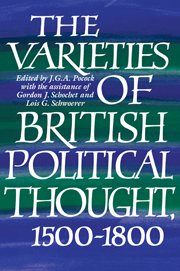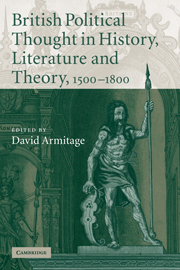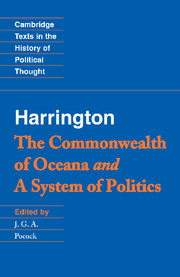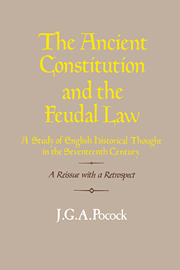The Varieties of British Political Thought, 1500–1800
There is at present no overall history of English and British political thought and literature in the early modern period, although new approaches to the writing of its history have taken shape in the past forty to fifty years; and during that time British political history has itself been subjected to intensive revision. This volume, written by directors of seminars at the Folger Institute Center for the History of British Political Thought in Washington DC, attempts to review the period from the English Reformation to the French Revolution, to suggest new ways of studying the articulation of political consciousness and the conduct of political argument, and to point out the extraordinary intellectual and linguistic richness of the ongoing English and British political debate.
- A new appraisal of the formative 200 years of British political thought by some of the leading experts in the field
- Edited by J. G. A. Pocock, one of the most familiar and respected names in the study of political theory
- Offers the most up-to-date conspectus in print of an important subject for philosophers, literature scholars, and political theorists
Product details
May 2012Adobe eBook Reader
9781139240765
0 pages
0kg
This ISBN is for an eBook version which is distributed on our behalf by a third party.
Table of Contents
- Editorial introduction
- Part I. Church, Court and Counsel:
- 1. The Henrician age John Guy
- 2. Elizabethan political thought Donald R. Kelley
- 3. Kingship, counsel and law in early Stuart Britain Linda Levy Peck
- Part II. Dissolution, Restoration and Revolution:
- 4. The Puritan Revolution: a historiographical essay William M. Lamont
- 5. Interregnum and Restoration J. G. A. Pocock and Gordon J. Schochet
- 6. The later Stuart age Howard Nenner
- Part III. Commerce, Empire and History:
- 7. Politics and politeness in the reigns of Anne and the early Hanoverians Nicholas Phillipson
- 8. Political thought in the English-speaking Atlantic: (i) The Imperial Crisis J. G. A. Pocock
- 9. (ii) Empire, revolution and an end of early modernity J. G. A. Pocock
- Part IV. Epilogue:
- 10. Why should history matter? Political theory and the history of discourse Gordon J. Schochet.









